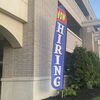2008 Business Leader of the Year: Kent Peterson
Small Company Business Leader:
KENT PETERSON
CEO, Fluid Imaging Technologies
Kent Peterson has guided Yarmouth high-tech firm Fluid Imaging Technologies to sharp growth and, best of all, back to profitability
Ballast water is decidedly unsexy. The water used to stabilize empty cruise ship, tankers and cargo ships is often murky and sometimes tainted with microorganisms. But Kent Peterson, CEO of Yarmouth-based Fluid Imaging Technologies, sees opportunity in ballast water.
The company builds and sells a specialized piece of equipment called the FlowCAM that fuses flow cytometer and microscope technology to analyze particles in fluid, automatically counting, assessing and digitally imaging particles and cells. Peterson recently traveled to the Netherlands for a conference on ship ballast as part of his mission to introduce the FlowCAM to the maritime trade. Peterson says the FlowCAM reduces lengthy inspections of slides to just seconds and can handle relatively large particles and sample volumes.
The opportunity? An increasing number of ports are requiring vessels to test for aquatic organisms in ballast water to ensure boats do not bring invasive species to shore. And Peterson says officials who need to quickly analyze multiple water samples to verify ships' shore worthiness could be aided by the FlowCAM. "There's 75,000 ocean-going ships. There are several thousand ports," Peterson muses while sitting in his Yarmouth office. By 2011, Peterson hopes, all sea ports will have adopted international ballast water regulations. "That'll come quickly," he adds. "We're going with the opportunity."
It's become Peterson's practice to peer into the microscopic world of cellular life to find the next big opportunity. So far, so good: After spending heavily in 2006 to grow the company, Fluid Imaging last year returned to profitability thanks to a 65% jump in sales, which moved north of $2 million. What's more, the company doubled its employee rolls and moved from a small house in Lincoln County to a state-of-the-art facility in Yarmouth.
The FlowCAM, developed a decade ago by Fluid Imaging President Dr. Christian Sieracki at the Bigelow Laboratory of Ocean Sciences in West Boothbay Harbor, is a high-tech cell counter that sells for between $40,000 and $85,000 apiece.
Though initially developed at an oceanographic research institute, the FlowCAM can be customized and applied to a range of products, like petrochemicals, pharmaceuticals, food, cosmetics and photocopier toner. A dishwasher manufacturer, for example, can use the FlowCAM to measure how clean the wastewater is from its newest dishwasher model. "There's no limit to the practical applications," Peterson says.
Peterson, who has been Fluid Imaging's CEO since 2002 and is also an avid sailor, has applied the seafaring necessities of flow and balance to his business philosophy. A patient, precise man with impeccable manners, he partly credits the company's substantial 2007 growth to maintaining balance. For instance, he habitually funnels company profits back in equal part to each department. "We focus on sales, administration and production to produce a balanced organization for growth," he explains.
But the business did surge ahead last year. After operating Fluid Imaging in a "nice little cedar home," in Edgecomb, as Sieracki puts it, Peterson decided it was time to expand. The company left its rootsy origins and moved into a newly built office in a Yarmouth business park with three times as much space. In 2007, Fluid Imaging grew its staff to 12 full-timers and sold a total of 35 FlowCAMs. This year, Peterson forecasts Fluid Imaging will sell 60 FlowCAMs.
Last year was also the second year the company reached profitability; the first year was 2005. Peterson says the company took a plunge in 2006, investing heavily in new hires, new product development, and sales and marketing to accelerate growth. "The investment provided rocket fuel to an already successful business model," he explains in an e-mail.
Spreading the word
The company reached a milestone last fall when it sold its 100th FlowCAM to ICO Polymers, an international company that produces custom-made powders for products like paint and ink additives, composites and adhesives. Craig Davis, a spokesman for ICO, says the company is testing the FlowCAM in its quality control department, using it to ascertain, for instance, whether particles are spherical, which helps them flow better in fluid and attain a higher bulk density.
Sieracki, who invented the FlowCAM while working at Bigelow in collaboration with Dr. Charles Yentsch and his cousin, Dr. Michael Sieracki, also acknowledges Peterson's equilibrium. "He's a real person of balance," Sieracki observes. Besides admiring Peterson's ability to juggle family and work, Sieracki says Peterson deftly manages revenue and expenditure streams, "so the flow of money is very wise."
When Sieracki left the nonprofit laboratory to commercialize his product in 1999, he met with several potential business partners. Peterson emerged as his clear preference. "I had talked to people who were just too harsh," Sieracki says. "[Peterson's] got a sparkling personality. He's Mr. Clean. He's a balanced, positive person."
Victoria Kurtz, the company's office manager, says Peterson reminded her before he left for one of his long trips to send off Valentine's Day cards he had set aside for his wife and daughters. "Two weeks before he left, he had specific dates he wanted them mailed," she recalls.
Peterson, 55, grew up in Connecticut, received his MBA from Boston University and started his career at corporate manufacturers, including W.R Grace & Company and Emhart Corp., both in Massachusetts. He migrated to start-ups, he says, because mature businesses lack the day-to-day diversity and hurdles of a fresh company. "It's not the same old, same old," he explains.
Peterson met Sieracki while he was still with Kady International, a Scarborough manufacturing firm he joined as president in 1992. "As it really turns out, when I learned of this technology, I realized it has a big place in manufacturing research," Peterson says. "Because I had experience in manufacturing and knew the tools available, I realized there were no tools like this."
The executive was ready to take a chance and help an engineer with a Ph.D. in optical physics bring his invention to the big-time profits of industry. In 2003, the company sold FlowCAMs exclusively to oceanographic institutes and universities. By last year, three out of every 10 FlowCAMs were sold to industrial customers.
But there are challenges in marketing a new and complex tool. The company's biggest task, Peterson says, is raising awareness of the FlowCAM. This means almost constant travel by the company's sales team to trade shows and technology conferences around the world. Peterson estimates he's on the road for 20% of each month, going everywhere from Australia and Spain to Oman and India. Despite all the jet setting, Peterson says he worries he's not doing enough. "It is incumbent upon us to get the word out," he says. "We just can't talk enough to people."










Comments